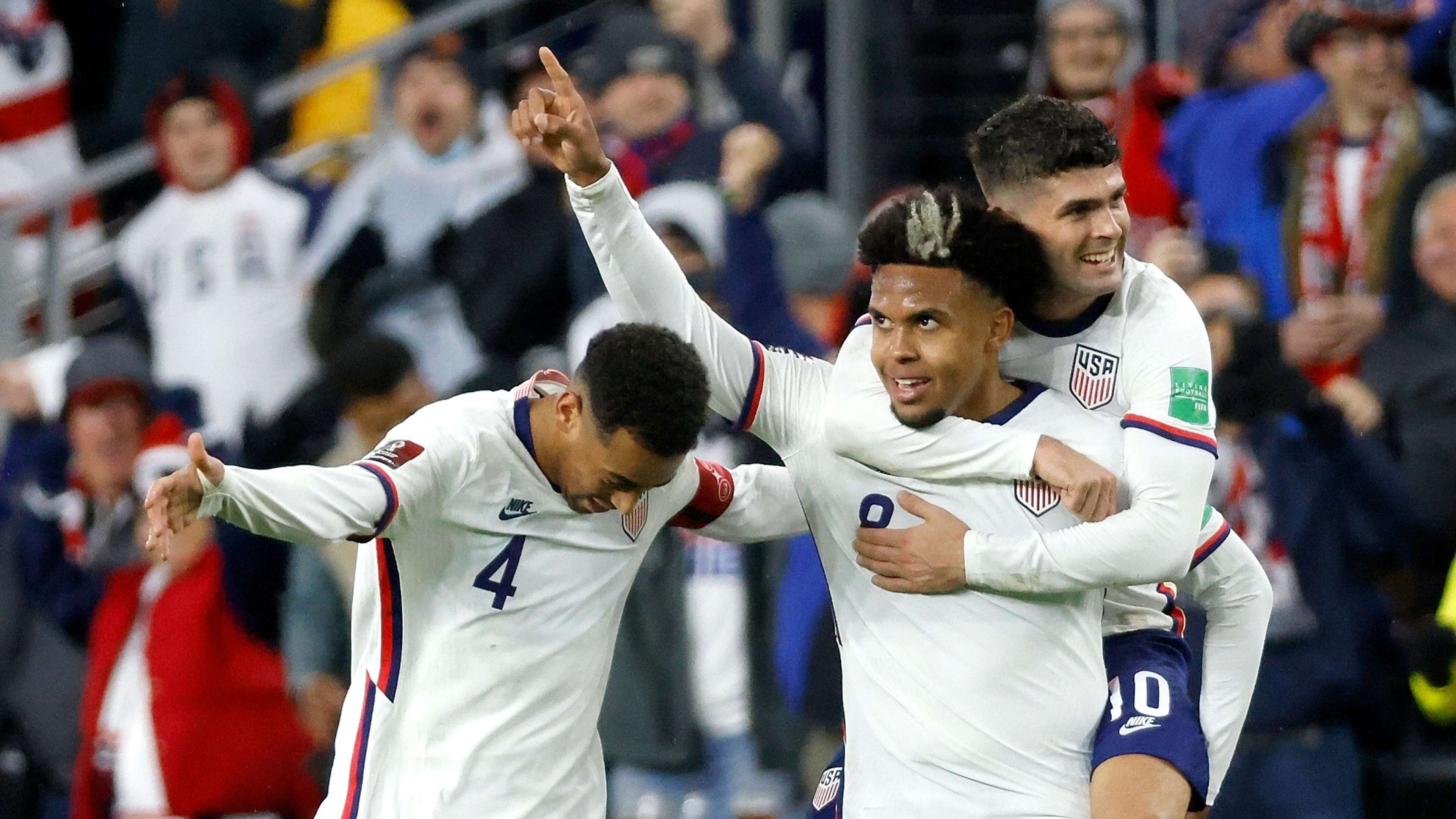For much of the last few years, the U.S. men's national team has been raising and cultivating a potential golden generation. After failing in spectacular fashion during the 2018 World Cup cycle, the 2022 go around has brought a younger, hungrier national team.
It's led by several up-and-coming stars that have already played at levels higher than any of their predecessors and, by all accounts, they aren't planning on slowing down.
Throughout their road toward Qatar, the USMNT's youngsters have stressed that their mission is about more than just them. It's also more than about growing the game in the U.S. and taking it to heights previous generations couldn't.
No, this team's mission statement has been focused on something bigger: proving to the world that change is coming, and has come, for American soccer. Underestimate that at your own peril.
"Absolutely, that's what we're here to do," star forward Christian Pulisic said ahead of the World Cup. "Maybe it hasn’t been the top sport back in the States and we want to change the way that the world sees American soccer – it’s one of our goals.
"We haven’t been at the level of some of these world powerhouses in recent decades, but we’ve had good teams with a lot of heart. We can take it to the next step – a successful World Cup would change a lot.''
Pulisic is right: much depends on this World Cup. That's how this sport works. Every four years, teams gather for this ultimate tournament, which will serve as a referendum on the four years of work that came before it.
For the U.S., that's particularly important after the failings of the 2018 cycle. The USMNT has been dormant on the global stage for eight years.
Yes, they've won the Gold Cup and Nations League, but those trophies don't matter so much outside of North America. In other parts of the world, American soccer is still very much seen as, at best, a sleeping giant that hasn't quite yet figured it out. At worst, it's seen as a pretender where this sport will never quite catch on.
In many ways, though, a World Cup is an imperfect way to change opinions. It's four years of work boiled down to 270, and if you're lucky maybe a few more, minutes. You have three games to make an impression. That's it.
And the U.S. young guns are more than aware that this tournament will be defining, even if many believe it's just an opening salvo. For a variety of reasons, 2026 will most likely be American soccer's coming out party with the tournament on home soil and with stars like Pulisic, Weston McKennie, Tyler Adams and Gio Reyna all set to be entering their primes in four years time.
But why wait? Can they really make this tournament the one that earns them respect?
To do so, they'll have to at least escape the group stage. There aren't moral victories in World Cups, especially when you have the ambitions that this USMNT has. Failing to escape the group would render all of that "change the perception" talk moot, as you don't change anyone's mind with an early exit.
The USMNT's past results at World Cups only further illustrate that point. In 2010, they finished atop a group that included, coincidentally, current group mates England, as well as Algeria and Slovenia. And then in 2014, Jurgen Klinsmann lifted the U.S. out of the group of death, joining Germany in the knockouts while leaving Portugal and Ghana wondering where it all went wrong.
This year's group isn't as rough as Germany, Portugal, Ghana, but calling the group easy would be a total underestimation of the task at hand. England are top dogs and potential title contenders, while Wales and Iran both have solid teams that can beat anyone on any day.
But make no mistake: for the U.S. to be what they want to be, they have to be the type of team that beats Wales and Iran. England is another matter, one of the world's elite teams, but if the U.S. wants to even claim that they're in that second tier just below the likes of the Three Lions, they can't afford to let Wales or Iran beat them out of the group stage.
And so the U.S. heads into the World Cup knowing what's at stake. It's about more than just a World Cup; it's about respect. It's about perception and status. It's about proving that things are actually different this time around.
Are they actually different? We'll find out on Monday against Wales. With the way the group shakes out, the U.S. will know very quickly where they stand. Win over Wales and they'll be feeling pretty good. A draw would leave a reason for optimism. A loss, though, and it'll be time to panic on just Day Two of the World Cup.
The USMNT's road to respect starts on Monday at Al Rayyan Stadium, a venue that could go down as the site of a renaissance, or a burial ground for their hopes of change.

